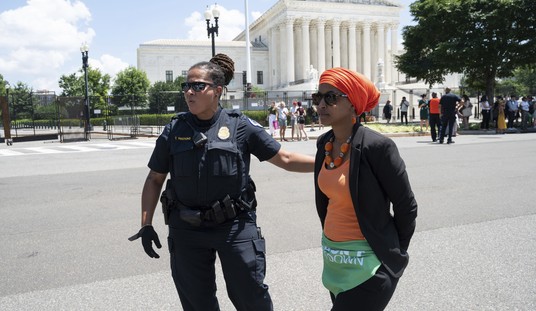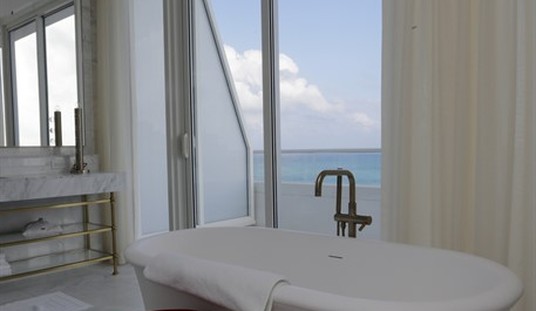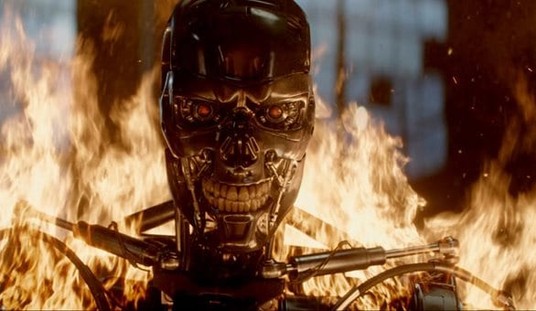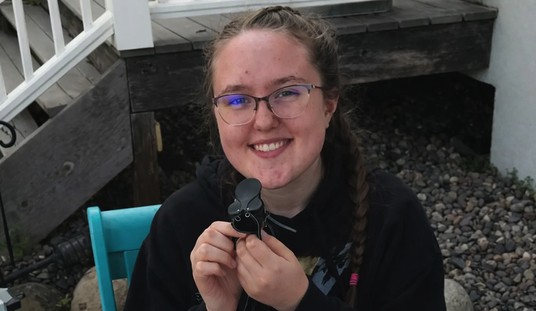
Every couple of days we get another opinion poll showing that Donald Trump has just hit the lowest approval rating of any president since numbers were invented. It provides a lot of fodder for the anti-Trumpers everywhere.
President Trump’s approval rating has hit a new low, coming in at 36 percent in the latest findings released by CNN
https://t.co/2ndGRm64hv pic.twitter.com/wcEzbKAf9W— POLITICO (@politico) November 7, 2017
Trump approval is lowest ever measured in new CNN pollhttps://t.co/cDxCnlXkwy
— Chris Cillizza (@CillizzaCNN) November 6, 2017
Trump’s Approval Rating Worst Among Presidents in Seven Decades – https://t.co/E1SRZrm1SU pic.twitter.com/brb4NZLr73
— Rick Tyler-Still Right (@rickwtyler) November 5, 2017
I wonder if this is as accurate as the polls that said @POTUS was going to lose the election big time??https://t.co/aV8T5RuKTv
— Franklin Graham (@Franklin_Graham) November 6, 2017
Trump approval falls to 33% in Gallup tracking. It's his all-time low. pic.twitter.com/xDJzIGMuAq
— Nate Cohn (@Nate_Cohn) October 30, 2017
Those polls might be true, but Trump is not alone in his lack of popularity:
Only 37% of Americans have a favorable opinion of Democrats, down from 44% in March of this year. A majority, 54%, have an unfavorable view, matching their highest mark in polls from CNN and SSRS, CNN/ORC and CNN/USA Today/Gallup stretching back to 1992.
The rating includes low favorable ratings from some core Democratic groups, including nonwhites (48%) and people under 35 years old (33%). The numbers come amid recent feuds and divisions in the Democratic Party, as former interim chair Donna Brazile’s new book has unveiled new questions about infighting during the 2016 presidential campaign.
But the Republican Party isn’t doing any better, with just 30% of Americans holding a favorable view. That’s essentially the same as September, when the rating hit its lowest point in polling back to 1992, but down from 42% in March. A broad 6 in 10, 61%, have an unfavorable opinion.
And what does this mean for 2018?
But at least for now, all of those negatives for the GOP appear to outweigh the Democrats’ decline in popularity when it comes to the ballot box, with Democrats continuing to hold a lead on a generic congressional ballot. Democrats top Republicans on that question by a wide 12 percentage points, 50% to 38%. That’s similar to a 14-point gap between the two parties last month.
Republicans and Democrats remain almost unanimously united behind their own candidates in 2018, but Democrats hold a crucial 10-point lead among independents.
There are more warning signs for Democrats in this poll. Overall, 36% of registered voters who identify as Democrats or Democratic-leaning independents say they are extremely or very enthusiastic about voting next year, down from 44% who said so in September. That puts Democratic enthusiasm on par with that of Republicans, which stands at 37%.
And there are signs in the poll that more of next year’s vote may be driven by dislike of a party than affection for one.
The connection between the generic ballot and actual outcomes is unclear. The week before the 1994 election, the Democrats led the generic ballot by 5 points.
And there is this perennial finding:
Americans say their own member of Congress deserves re-election in November, 46% to 39%, with a sizable 15% unsure.
If this poll is correct, what it is showing is that Trump’s low approval rating is not translating into Democrat enthusiasm or a feeling that the bums should be thrown out. It says incumbents will probably hold on…as they usually do…with some minor changes around the edges.
None of this is to say that Trump’s low approval rating doesn’t have a cost — it does. He doesn’t have the widespread support that a president needs to push Congress in the direction he wants to go. It means that most members of Congress aren’t afraid of defying him. It means he doesn’t have the popularity necessary to make him a must-have for a reelection campaign. With the numbers at this point after nearly a year in office, I suspect they are close to baked in. On the other hand, it also means that Congress is less popular than Trump so they have no real leverage, either. Whether any of that is meaningful in 2018 or 2020 is anyone’s guess.














Join the conversation as a VIP Member